ГДЗ Англійська мова 6 клас. Підручник [Калініна Л.В., Самойлюкевич І.В.] 2014
Unit One: Family Ties
p. 13, ex. 1. 1. We usually go picnicking on Sunday. — We sometimes go picnicking on Sunday.
2. My brothers play chess everyday. — My brothers never play chess.
3. My dad often watches TV in the evening. — My dad seldom watches TV in the evening.
4. Our grandparents always work in the garden. — Our grandparents never work in the garden.
5. My cousins visit us every summer. — M y cousins never visit us in summer.
6. Our relatives usually write us e-mails. — Our relatives seldom write us e-mails.
a) Play a grammar chain game
p. 13, ex. 1.
1. to go to the seaside every summer — They go to the seaside every summer, don’t they.
2. to have a family reunion — His relatives have a family reunion, don’t they.
3. to visit their relatives — My friends often visit their relatives, don51 they.
4. to take part in sport activities — My brother takes part in sport activities, doesn’t he.
5. to keep their family traditions — A lot of families keep their family traditions, don’t they.
6. to help each other — All members of the family help each other out, don’t they.
p. 14, ex. 1b.
My grandfather is the head of our family.
In our family we all help each other.
My mother and a grandmother are equally hectic.
I think this car is on the move.
My little sister enjoys doing the puzzles,
I visit my cousins from time to time.
This film is really adventurous.
I’ll never forget this memorable event. Look at this breathtaking view.
p. 18, ex. 2.
A: Hey Ann, what is the lifestyle of your family?
B: Oh, I think it’s quite different.
A: Really? And how does it differ from ours?
B: Traditionally we all are very busy. Our schedule is hectic. My parents are working; my brother and me are studying... From time to time we get together and have a good time.
A: I believe we have much in common because enjoy spending time together.
B: Great! We also have our family traditions.
A: It’s extremely interesting, isn’t it?
B: Sure. Many countries, many lifestyles, you know.
p, 18, ex. 3. 2.
When the Inuit men go hunting or fishing...
3. Sam Davidson’s family bought an RY — a home on wheels
4. All members of his family are so adven-turous.
5. Miyo’s family is well-organized.
6. Many children in Japan are digital na-tives.
p. 18, ex. 3.
I think most Ukrainian families have a lot in common; Parents usually work if there are no babies at home. Children go to school and help their parents about the house. OX course they find some time to go out with friends. When they have some free time they enjoy going to the country. I think a happy family is helpful and friendly.
p. 19, ex. 1b.
1. Aren’t the children friendly? — b. Sure. They help each other out.
2. Don't they like to draw? — c. They do. They are good at drawing.
3. Isn't the girl talented? — a. She is. She has a gift for drawing.
4. Doesn’t she like autumn? — f. Yes, she does. 11 is her favourite season,
5. Aren’t children creative? — e. Yes, they are. They create nice pictures.
6. Don’t they like to come to their art- studio? — d. Of course they do. They come there every Friday.
p. 19, ex. III.
Look and Recall. Use general questions for getting general information.
In pairs, ask “Yes or No” questions about y our family members and answer them.
Example: — Is your granny kind?
Yes, she is.
Is your grandpa clever?
Yes, he is.
Is your sister funny?
Yes, she is.
p. 19 ex. VIII.
Our family is small but friendly and helpful. We are four. My parents, my sister and me. We all are busy but we try to spend time together. We can do it in the evening and at weekend. On week days we usually meet only in the evenings because my parents are at work and my sister and I are at school and then we attend our dance classes. At the weekends we usually go out together/ We prefer to play badminton in the park. What do all members of our family have in common? We are helpful and friendly. And we love each other.
p.22, ex. IVa.
generous, polite, cute, kind, helpful, friendly.
Negative qualities of a personality and add more negative characteristics.
Stingy, rude, impolite, mean, unfriendly, unkind.
p. 22, ex. IVb.
Describe pluses and minuses of your personality. Begin with:
They say I am a creative person.
2. And really I can be friendly.
3, From time to time I am lazy.
4. I can also be rude.
5. But I never forget my friends.
6. I can be noisy.
7. I can't be quiet.
8. My friends say I am too talkative.
p. 22, ex. IVc.
At home, I think my friend is helpful and reliable. They say he is friendly and helpful. We think he is creative. But he can be too talkative and noisy. And from time to time he is lazy.
p. 23, ex. 2.
Example: Ann is always silent. — Ann is always talkative.
1. My friend is very kind. — My friend is very rude.
2. The boy is so stingy. —The boy is so generous.
3. A child is impolite. — A child is polite.
4. The girl is silly, sometimes. —The girl is clever, sometimes.
5. My girl-cousin is very impatient. — My girl-cousin is very patient.
6. Your action is wise. — Your action is silly
p. 24, ex. 2.
I bet blue is your favourite clour, isn’t it?
So it is. And what does it mean, I wonder?
B. They say, colours may say much about your personality. For example, you are very calm and supportive.
A. The world we live in! And you, Jane, like clotlxesin yellow. What kind of personality are you?
B. A yellow colour speaks of an optimistic personality. Maybe this is the reason why I’m always cheerful.
A. There is smth in what you say. You are funny cute. But don't take it so seriously. You can’t judge a person only by his favourite colours.
B. Right. The proverb goes “Handsom is that handsome does”. That’s it. Your ac¬tions good or bad-will say what you are, can I rely on you or will you let me down.
A. I can’t agree more. We’ve been friends with you for many years and I know your real self.
B. Me too. And it can’t otherwise.
p. 24, ex, 3.
I think a red colour speaks about a quick tempered personality.
I think a black colour speaks about a reliable personality.
I think a white colour speaks about a personality who always acts well..
p. 24, ex. 3.
This is my uncle. I appreciate him very much because he is clever and friendly. He is always ready to help in a difficult situation. His friends say that they are happy to have such a good friend. But sometimes he is too noisy and talkative.
p. 25, ex. 1.
1. My brother is fat, is he?
3. He is attractive, doesn’t he?
4. They are charming, aren’t they?
5. Ann looks like her mother, doesn’t he?
6. Bohdan has got blue eyes, hasn’t he.
p. 26, ex. 2.
1. Your friend looks pretty. — Don’t you like her.
2. Your brother has got expressive eyes. — Don't you like them?
3. Ann’s hair is curly and lovely. — Don’t you like it?
4. Helen looks like her mother. — Don’t you like her?
5. Both boys are tall and slender. — Don’t you like them?
6. My friend has got a freckled face. — Don’t you like her?
7. Oksana has a sweet smile. — Don’t you like her?
p. 28, ex. 2.
I like my best friend. She is so pretty. Ann has got big expressive eyes. They are always full of spirit and liveliness. Her mouth is sweet-lipped and she has got broad and full forehead. Her face is freckled and it makes her even more pretty. I like Ann’s hair which she wears in braids. I don’t know how she can comb her hair every day.
He isn’t smiling. He is serious. He isn’t waving to his friend. He is standing at the sea. His eyes aren’t brown. They are grey.
p. 28, ex. 3.
Everybody says I look like my mother. I think they are right. My mother is a pretty slim woman. She has got expressive blue eyes. My eyes are also blue and full of liveliness. We both have long wavy hair though my hair is fair and mother’s hair is dark. We have got sweet — lipped and freckled faces.
p. 30, ex. 2.
A. I say, how does your sister look like?
B. They say, she is very pretty. She has got long and fair hair.
A. She is slim, isn’t she.
B. Yes. And her freckled face makes her more charming.
A. And what about your brother? Is he nice?
B. Sure he is.
A. Has he got the same hair as you have?
R. We have much in common. But our appearances are different. He is tall and thin.
p. 31, ex. VII.
I like my best friend. She is so charming. Kate has got expressive blue eyes. They are always full of spirit and liveliness. Her mouth is sweet-lipped and she has got broad and full forehead. Her nose is turned up and it makes her even more pretty. I like Kate’s hair which she wears in ponytail.
p. 33, ex. 1.
Across: supportive
hardworking
well-read
helpful
Down: honest
p. 33, ex. 2.
1. You often see your friend — We see a lot of each other.
2. You like to be with your friend — I enjoy my friend’s company.
3. You got to know a new friend — I made friends with...
4. Your friend can tell interesting stories — He’s a good storyteller.
5. Your friend works hard — My friend is hardworking.
6. You met a new friend and liked him at once — We hit it off.
1. We both like sports — We share our interest in sport.
2. I often meet my friend — We see a lot of each other.
3. I am in good relations with my friend — I enjoy my friend’s company.
4. My friend reads a lot and knows much — He is well-read
5. My friend always supports me — He is supportive
6. My friend helps me when I need it — He is helpful.
p. 33, ex. 3.
At home. I am happy to have a new friend. We met at the tennis club so we share our interest in sport. We meet every day because I enjoy my friend’s company. Nick is helpful and friendly so I think he is a good friend. He is well read and I enjoy speaking to clever people. We usually spend a lot of time together. We always find what to do. But we especially like to go out at the weekend.
p. 35, ex. 1.
Time to Communicate I have a closest friend. It’s Tim. We have a lot in common and we share our interest in sport. We met in our football club and immediately hit it off. We enjoy spending time together and see a lot of each other.
In the dialogue “Getting along” find the information for the following chart.
p. 35, ex. 2.
1. Dan likes to eat much. He is such a heavy eater.
2. Jane reads much and she is the best story teller of my class.
3. Martin has got many friends. He is such a good mixer.
4. My twin brother Andrew spends much trine at his lessons. He is a real hard work-er.
5. Vera likes to sleep. She is often late for classes. We call her a sleepy head.
6. Mike is not ready for the lesson again. He is a lazy bone.
p. 35—36, ex. 3.
| Common Interests | Common Character Traits | Favourite Leisure Time |
| Chess reading | hard workers and good mixers | playing chess talking sitting around |
I think a true friend should keep his friend’s secrets not to let him down. It’s very nice if he remembers my birthday. We should give some advice only if it is necessary. We should discuss the things that worry to solve our problems together. Of course it’s nice to attend concerts together and share the books (CDs).
p. 36, ex. I.
1. You get along with your friends, don’t you?
2. Your family isn’t big, is it?
3. Am has got two thick braids, has she
4. You can rely on your parents, can’t you?
5. Dan isn’t stingy, is she?
6. A child takes my words seriously, doesn’t it?
7.Your sister always helps you out, doesn’t she?
8. Many Americans are on the move, don’t they?
p. 36, ex. VIII.
I think a true friend should keep his friend’s secrets not to let him down. It’s very nice if he remembers my birthday. We should give some advice only if it is necessary. We should discuss the things that worry to solve our problems together. Of course it’s nice to attend concerts together and share the books (CDs).
p. 37, ex. III. 1. c. Aunty Glad
2. a. 250
3. b. by train
4. b. the sea
5. c. a stranger
6. a. sunny
c. Aunty Glad
p. 39, ex. VI.
I think every member of the family must respect each other. It is important not only for good relationships but also for a better understanding. Besides, you must have a person you can always count on. It can be either your mother or a father.
 ГДЗ Англійська мова 7 клас Калініна Самойлюкевич 2014 Генеза Підручник
ГДЗ Англійська мова 7 клас Калініна Самойлюкевич 2014 Генеза Підручник
 Якщо помітили в тексті помилку, виділіть її та натисніть Ctrl + Enter
Якщо помітили в тексті помилку, виділіть її та натисніть Ctrl + Enter 02.02.2021,
02.02.2021,
 1 603,
1 603,
 0
0
 Назад
Назад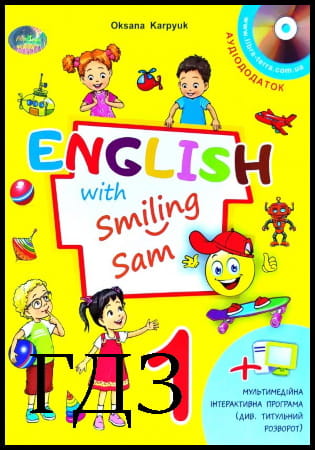
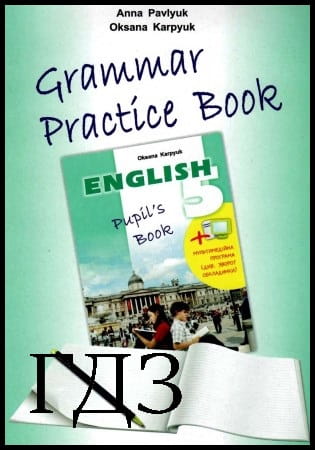
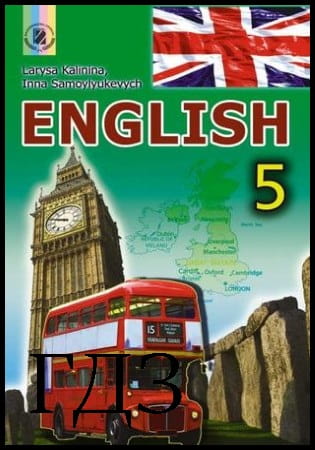
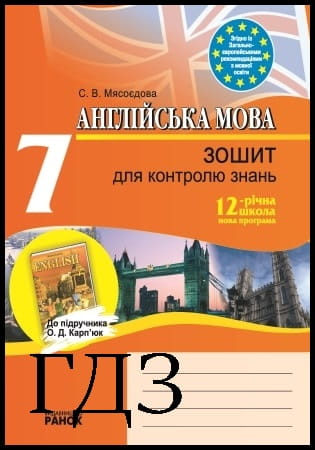
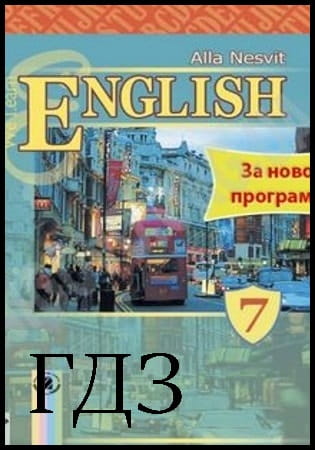
![ГДЗ Природознавство 5 клас. Підручник [Ярошенко О.Г., Бойко В.М.] 2018 ГДЗ Природознавство 5 клас. Підручник [Ярошенко О.Г., Бойко В.М.] 2018](/uploads/posts/2019-04/1555779316_5_p_y_u2018.jpg)
![ГДЗ Основи правознавства 9 клас. Підручник [Наровлянський О. Д.] 2017 ГДЗ Основи правознавства 9 клас. Підручник [Наровлянський О. Д.] 2017](/uploads/posts/2019-02/1550928122_9k_p_n_2017.jpg)
![ГДЗ Українська мова 8 клас. Підручник [Глазова О.П.] 2021 ГДЗ Українська мова 8 клас. Підручник [Глазова О.П.] 2021](/uploads/posts/2021-10/1633720388_8k_y_g_2021.jpg)
![ГДЗ Вступ до історії 5 клас. Підручник [Гісем О.В.] 2018 ГДЗ Вступ до історії 5 клас. Підручник [Гісем О.В.] 2018](/uploads/posts/2019-07/1564163269_5k_i_h_2018.jpg)